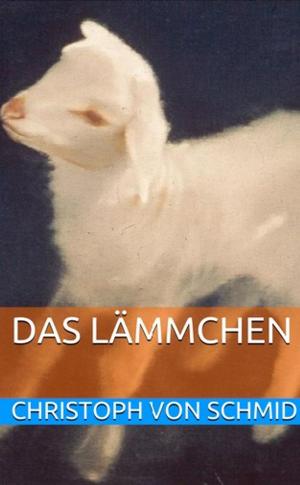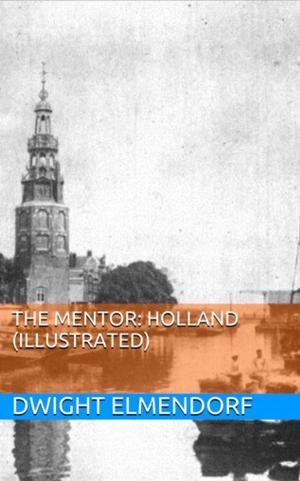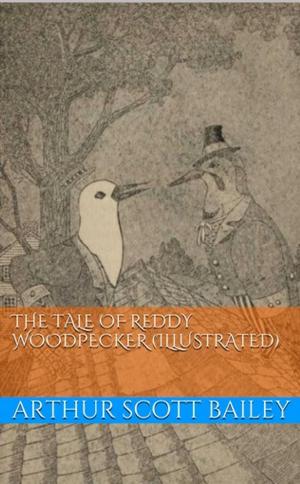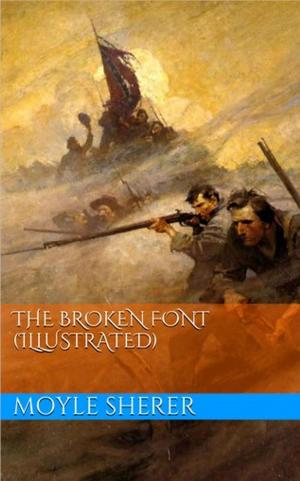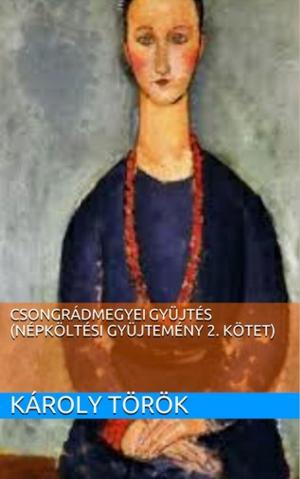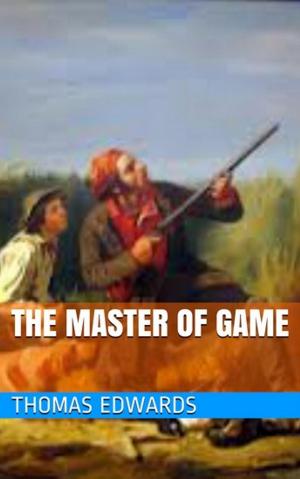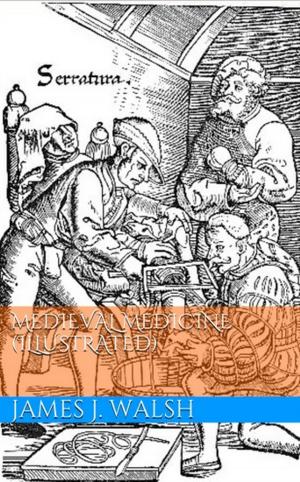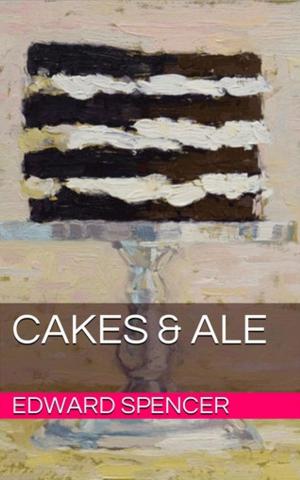| Author: | R. D. Blackmore | ISBN: | 1230000154568 |
| Publisher: | Lost Leaf Publications | Publication: | July 24, 2013 |
| Imprint: | Language: | English |
| Author: | R. D. Blackmore |
| ISBN: | 1230000154568 |
| Publisher: | Lost Leaf Publications |
| Publication: | July 24, 2013 |
| Imprint: | |
| Language: | English |
Cripps, the Carrier
A Woodland Tale
CHAPTER I.
THE HEAD OF THE FAMILY.
The little village of Beckley lies, or rather lay many years ago, in the quiet embrace of old Stow Wood, well known to every Oxford man who loves the horn or fusil. This wood or forest (now broken up into many straggling copses) spread in the olden time across the main breadth of the highland to the north of Headington, between the valley of the Cherwell and the bogs of Otmoor. Beckley itself, though once approached by the Roman road from Alchester, must for many a century have nursed its rural quietude, withdrawn as it was from the stage-waggon track from High Wycombe to Chipping Norton, through Wheatley, Islip, and Bletchingdon, and lying in a tangle of narrow lanes leading only to one another. So Beckley took that cheerful view of life which enabled the fox to disdain the blandishments of the vintage, and prided itself on its happy seclusion and untutored honesty.
But as all sons of Adam must have something or other to say to the rest, and especially to his daughters, this little village carried on some commerce with the outer world; and did it through a carrier.
The name of this excellent man was Cripps; and the Carrier's mantle, or woolsey coat, had descended on this particular Cripps from many generations. All the Cripps family had a habit of adding largely to their number in every generation. In this they resembled most other families which have to fight the world, and therefore recruit their forces zealously; but in one great point they were very distinct—they agreed among one another. And ever since roads were made, or rather lanes began trying to make themselves, one great tradition had confirmed the dynasty of Crippses.
This was that the eldest son should take the carrying business; the second son (upon first avoidance) should have the baker's shop in Oxford over against old Balliol College; the third should have the queer old swine-farm in the heart of Stow Forest; the fourth should be the butcher of Beckley, and the fifth its shoemaker. If ever it pleased the Lord to proceed with the masculine fork of the family (as had happened several times), the sixth boy and the rest were expected to start on their travels, when big enough. As for the girls, the Carrier, being the head of the family, and holding the house and the stable and cart, was bound to take the maids, one by one, to and fro under his tilt twice a week, till the public fell in love with them.
Now, so many things come cross and across in the countless ins and outs of life, that even the laws of the Crippses failed sometimes, in some jot or tittle. Still there they stuck, and strong cause was needed ere they could be departed from. Of course the side-shoots of the family (shoemakers' sons, and so on) were not to be bound by this great code, however ambitious to be so. To deal with such rovers is not our duty. Our privilege is to trace the strict succession of the Crippses, the deeds of the Carrier now on the throne and his second best brother, the baker, with a little side-peep at the man on the farm, and a shy desire to be very delicate to the last unmarried "female."
The present head of the family, Zacchary Cripps, the Beckley carrier, under the laws of time (which are even stricter than the Cripps' code), was crossing the ridge of manhood towards the western side of forty, without providing the due successor to the ancestral driving-board. Public opinion was already beginning to exclaim at him; and the man who kept the chandler's shop, with a large small family to maintain, was threatening to make the most of this, and set up his own eldest son on the road; though "dot and carry one" was all he knew about the business. Zacchary was not a likely man to be at all upset by this; but rather one of a tarrying order, as his name might indicate.
Truly intelligent families living round about the city of Oxford had, and even to this day have, a habit of naming their male babies after the books of the Bible, in their just canonical sequence; while infants of the better sex are baptized into the Apocrypha, or even the Epistles. So that Zacchary should have been "Genesis," only his father had suffered such pangs of mind at being cut down, by the ever-strengthening curtness of British diction, into "Jenny Cripps," that he laid his thumb to the New Testament when his first man-child was born to him, and finding a father in like case, quite relieved of responsibility, took it for a good sign, and applied his name triumphantly.
Cripps, the Carrier
A Woodland Tale
CHAPTER I.
THE HEAD OF THE FAMILY.
The little village of Beckley lies, or rather lay many years ago, in the quiet embrace of old Stow Wood, well known to every Oxford man who loves the horn or fusil. This wood or forest (now broken up into many straggling copses) spread in the olden time across the main breadth of the highland to the north of Headington, between the valley of the Cherwell and the bogs of Otmoor. Beckley itself, though once approached by the Roman road from Alchester, must for many a century have nursed its rural quietude, withdrawn as it was from the stage-waggon track from High Wycombe to Chipping Norton, through Wheatley, Islip, and Bletchingdon, and lying in a tangle of narrow lanes leading only to one another. So Beckley took that cheerful view of life which enabled the fox to disdain the blandishments of the vintage, and prided itself on its happy seclusion and untutored honesty.
But as all sons of Adam must have something or other to say to the rest, and especially to his daughters, this little village carried on some commerce with the outer world; and did it through a carrier.
The name of this excellent man was Cripps; and the Carrier's mantle, or woolsey coat, had descended on this particular Cripps from many generations. All the Cripps family had a habit of adding largely to their number in every generation. In this they resembled most other families which have to fight the world, and therefore recruit their forces zealously; but in one great point they were very distinct—they agreed among one another. And ever since roads were made, or rather lanes began trying to make themselves, one great tradition had confirmed the dynasty of Crippses.
This was that the eldest son should take the carrying business; the second son (upon first avoidance) should have the baker's shop in Oxford over against old Balliol College; the third should have the queer old swine-farm in the heart of Stow Forest; the fourth should be the butcher of Beckley, and the fifth its shoemaker. If ever it pleased the Lord to proceed with the masculine fork of the family (as had happened several times), the sixth boy and the rest were expected to start on their travels, when big enough. As for the girls, the Carrier, being the head of the family, and holding the house and the stable and cart, was bound to take the maids, one by one, to and fro under his tilt twice a week, till the public fell in love with them.
Now, so many things come cross and across in the countless ins and outs of life, that even the laws of the Crippses failed sometimes, in some jot or tittle. Still there they stuck, and strong cause was needed ere they could be departed from. Of course the side-shoots of the family (shoemakers' sons, and so on) were not to be bound by this great code, however ambitious to be so. To deal with such rovers is not our duty. Our privilege is to trace the strict succession of the Crippses, the deeds of the Carrier now on the throne and his second best brother, the baker, with a little side-peep at the man on the farm, and a shy desire to be very delicate to the last unmarried "female."
The present head of the family, Zacchary Cripps, the Beckley carrier, under the laws of time (which are even stricter than the Cripps' code), was crossing the ridge of manhood towards the western side of forty, without providing the due successor to the ancestral driving-board. Public opinion was already beginning to exclaim at him; and the man who kept the chandler's shop, with a large small family to maintain, was threatening to make the most of this, and set up his own eldest son on the road; though "dot and carry one" was all he knew about the business. Zacchary was not a likely man to be at all upset by this; but rather one of a tarrying order, as his name might indicate.
Truly intelligent families living round about the city of Oxford had, and even to this day have, a habit of naming their male babies after the books of the Bible, in their just canonical sequence; while infants of the better sex are baptized into the Apocrypha, or even the Epistles. So that Zacchary should have been "Genesis," only his father had suffered such pangs of mind at being cut down, by the ever-strengthening curtness of British diction, into "Jenny Cripps," that he laid his thumb to the New Testament when his first man-child was born to him, and finding a father in like case, quite relieved of responsibility, took it for a good sign, and applied his name triumphantly.


